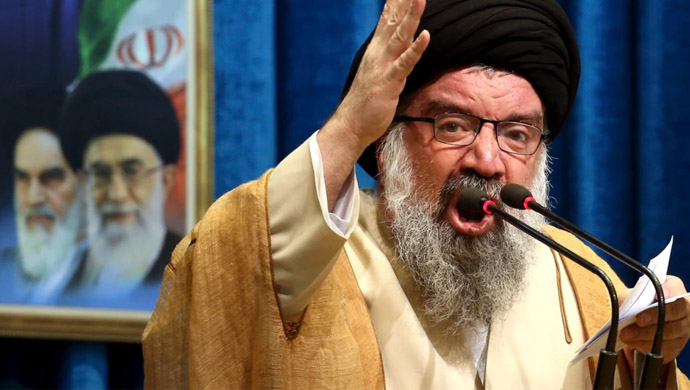Led by representatives of Iranian regime supreme leader Ali Khamenei, Friday Prayer speeches reflect the policy focus and directions of the Iranian regime. This week’s Friday Prayers were a manifestation of disarray and uncertainty among key domestic and foreign policy issues.
Referring to the controversial internet censorship bill, Ahmad Khatami, deputy-Speaker of the Assembly of Experts and the Friday Prayer leader of Tehran, said, “This plan is still being discussed. Why are you speaking critically? Why are we speaking with anger?” Khatami’s remarks reflect the general feeling of desperation and frustration among regime officials as they struggle to bridge the growing gaps among the elite on key policy issues.
Internet censorship is just one of the many areas where regime officials are quarreling among themselves. From the budget bill to monetary policies and the ongoing nuclear negotiations in Vienna, regime officials cannot seem to find common ground.
A few examples clearly display the disarray in the regime’s hierarchy of power.
Regarding the modification of the rial-to-dollar exchange rate, Hamidreza Haji Babaei, who opposes the plan to remove the pegged exchange rate, said, “They want to cause a confrontation between the Majlis with the people… The year 1401 (starting in March 2022) is the year of the people, the year of livelihoods.” In response, another MP accused Haji Babaei of trying to portray himself as a hero of the people.
The internet censorship bill triggered similar disputes in the Majlis. One MP warned that by ratifying the bill, “You will be destroying the Majlis and get on the society’s nerves.” Another MP said, “Why are we trying to destroy ourselves.” Meanwhile, others warned that if the internet is not controlled the MEK “will destroy the government and Majlis.” Others warned about the growing volatility in Iran’s society and the presence of security forces at every corner. And the state-run Mardom Salari newspaper observed, “Fear of the people and extreme stupidity is manifesting itself in opposition to internet.”
Even the Russian invasion of Ukraine has caused inner turmoil among regime officials. On the one hand, regime president Ebrahim Raisi, foreign ministry officials, and Ali Shamkhani, the secretary of the Supreme National Security Council is openly supporting Russia’s aggression against Ukraine. On the other hand, Heshmatollah Falahatpisheh, the former chairman of the Majlis Security and Foreign Policy Commission, criticized the government’s stance and warned that the regime will be “the only loser” in this conflict.
In a February 21 article, the state-run Jahan-e Sanat newspaper described this state of confusion as “many knots that can’t be untied and have been compounded… and are confounding the government and Majlis.”
Last year, Khamenei decided to consolidate his regime by promoting Raisi to the presidency. Apparently, having a seamless regime would help Khamenei better deal with the crises that his regime faced and empower it to deal with Iran’s growingly restive society. But six months into Raisi’s presidency, infighting among factions and officials have only intensified and the regime has failed to assemble a united front in face of the multitude of challenges it faces. Meanwhile, protests continue to grow in number and size, and the Iranian Resistance becomes increasingly organized and active. These are undeniable signs of a regime that is losing its grip on power.





